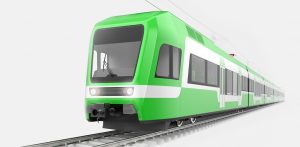 Stadler and Alstom have submitted the bid for the tender to supply of 54 new low-floor EMU fleet for Budapest suburban rail lines. For the tender, launched by Budapest Development Agency (BFK) and the Hungarian operator MÁV HÉV, the two rolling stock manufacturers will enter technical negotiations and after that, the companies will submit their final technical design and the price of new trains.
Stadler and Alstom have submitted the bid for the tender to supply of 54 new low-floor EMU fleet for Budapest suburban rail lines. For the tender, launched by Budapest Development Agency (BFK) and the Hungarian operator MÁV HÉV, the two rolling stock manufacturers will enter technical negotiations and after that, the companies will submit their final technical design and the price of new trains.
The firm order involves 42 trains to replace the 40-55-years-old trainsets with an option for 12 new EMUs, which are intended to be used on the planned extensions which are in planning phase by Budapest Development Agency.
The new EMUs should be 120 metre-long, with a minimum capacity of 700 passengers and with dedicated spaces for minimum 4 wheelchairs, as well as and for bicycles. The trains should be able to run at speeds of 100 km/h and should be fully accessible from upgraded 55 cm platforms. The EMUs will be equipped with air conditioning systems, passenger information system and board equipment to promote a safe transport service.
In addition to the spacious and fully open-gangway vehicles, new vehicles must be comfortable for long-distance services. To meet the requirements of fast passenger boarding the new cars will have 14 doors per side.
New trains will be designed according to the requirements needed to meet the transport on the future metro Line 5.
The low-floor EMU fleet should be delivered from 2023 to 2025 ensuring full vehicle replacement on the H5, H6 and H7 suburban lines.
After the contract is signed, the manufacturer must the trains within 44 months. The option is expected to be exercised within 6 years and the trains will enter passenger operation on the line 5. The purchase will be followed later by another train tender to replace the vehicles on the Nagy railway and Hév-factory in Kunszentmiklós and Esztergom.
This is the largest public transport rolling stock investment in the Budapest region in the last 40 years. The new trains will serve the rail transport on the H5 (Szentendre), H6 (Ráckeve) and H7 (Csepel) suburban lines. They will offer improved passenger services on the railway routes from Budapest to the Békásmegyer residential area, Csepel, Pesterzsébet or Óbuda or agglomeration from Szentendre – Pomáz and Ráckeve – Szigetszentmiklós – Dunaharaszti area.
The new trains will be needed to serve the modernised rail network. The authorities are currently implementing upgrade and modernisation works of the Budapest suburban lines and plan new projects that will make rail transport more attractive to promote the road-to-rail modal shift. More information on the projects was delivered by Dávid Vitézy, the CEO of Budapest Development Agency, to our publication on the November issue.
We remind you that in May, MÁV-Start launched a tender for the procurement of 50 bi-mode trains to replace the old rolling stock fleet. In March, the rail operator has put into passenger service the first of the 40 Kiss double-deck EMUs.
Share on:



